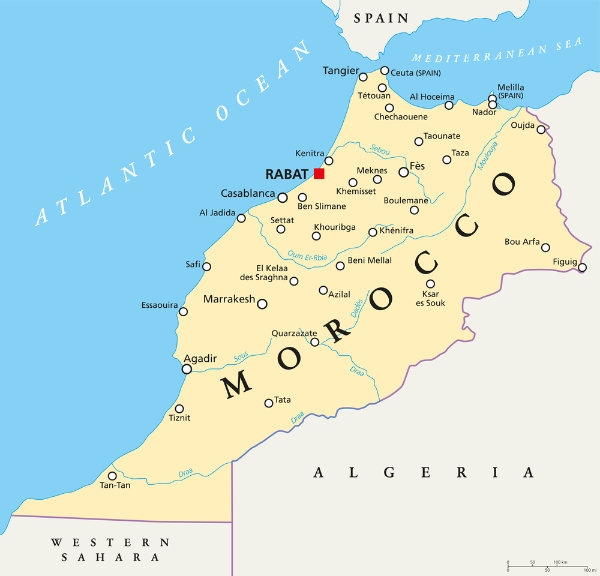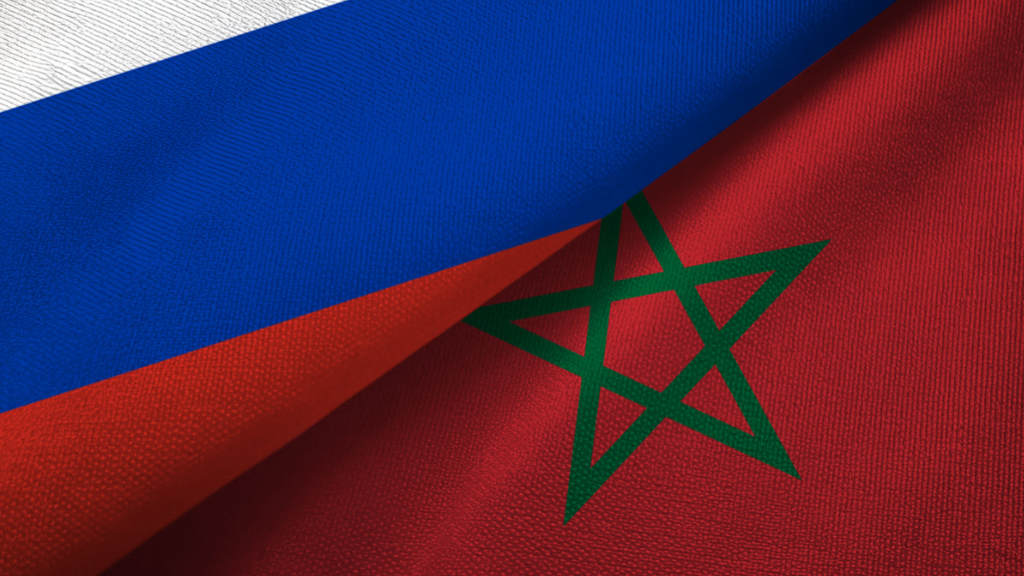The Russian Foreign Minister, Sergey Lavrov, has met with Nasser Bourita, the Minister of Foreign Affairs and African Cooperation of Morocco on the sidelines of the 80th Session of the UN General Assembly in New York.
During the conversation, they addressed several bilateral issues, including the scheduling of upcoming multilateral meetings. The two sides reaffirmed their commitment to maintaining effective foreign policy coordination in order to resolve persistent crisis situations in the Middle East and North Africa, as well as in the Sahara-Sahel Region. Morocco has southern borders with the Sahel nations deep in the Sahara Desert, which has been the base of Islamic insurgents.

Morocco has access to numerous international markets, being part of the Greater Arab Free Trade Area (GAFTA), which promotes trade between Arab countries, and the African Continental Free Trade Area (AfCFTA). As such it is developing as a Gateway to the MENA region for Russian investors in multiple sectors.
With a population of approximately 38 million, Morocco’s GDP (PPP) is around US$396.52 billion, with a GDP per capita (PPP) of approximately US$10,620. The country is projected to have a 4.4% growth in GDP for 2025. This is partially due to ongoing infrastructure development for major events such as the 2025 Africa Cup of Nations, which kicks off in December, and the 2030 World Cup.
Bilateral trade between Morocco and Russia has been growing steadily, with trade turnover reaching about US$3 billion during 2024. This relationship continues to strengthen, with both countries exploring further economic cooperation. Russia has expressed its commitment to establishing a free trade zone with North African countries, including Morocco. However, there remain issues to clear up in terms of an erratic import tariffs system in Morocco, although Russia’s bilateral trade is significant as it constitutes a sizeable part of Russia’s overall commerce with the African continent.

Russian importers are traditionally interested in grapes, citrus fruits, nuts and cocoa beans from Morocco and other North and East African countries. Morocco maintains close ties with particular regions of Russia. For instance, trade between the Russian Republic of Bashkortostan, a traditionally ethnic Turkic region, and Morocco increased 30-fold over the past five years. Various autonomous regions of Russia have been selectively astute in developing trade partners that fit mutual needs.
Overall, Russia’s exports to Morocco mainly consist of oil, diesel, coal and inorganic chemicals. There are increasing exports of fertilizers, stone and plaster materials, aluminium, and cereals among related products. Russia imports fruits and nuts, and light industry products in addition to lumber, cars, veterinary vaccines, and IT services.
Russian grain suppliers are particularly interested in Morocco as the country is among top African importers of wheat, as it struggles with drought and desertification in its southern regions. Morocco imported a record US$280 million of Russian agricultural produce – mainly wheat – in 2024. Russia now exports more what to Morocco than France does, amidst a cooling of relations between Rabat and Paris.
Morocco has also signed a new four year fisheries agreement with Russia this year, allowing Russian vessels to access up to 80,000 tonnes of seafood, principally sardines, sardinella, mackerel and anchovies.
Russian tourism to Morocco is also increasing as Russian holidaymakers look for non-European destinations, with Morocco receiving the largest share of Russian tourists visiting Africa.
Other industry trade sectors are also increasing. Russia is exporting pharmaceuticals to Morocco, with some producers looking at investing in the country to gain access to other MENA markets. The expansion of compulsory health insurance in Morocco is significantly increasing the need for pharmaceuticals. These include insulins, vaccines, and anti-cancer drugs. Russian companies have already localised production of several medications, are supplying sought-after drugs, and negotiations on technology transfer are underway.
There has also been development in the IT sector, with Russian IT companies investing in the country to contribute towards Morocco’s National Digital Development Strategy. This aims to turn the country into one of Africa’s technology hubs by 2030.
E-government services are being developed, 5G is being rolled out, data centres are being created, and IT education is expanding. Against this backdrop, Russian companies are finding a niche in cybersecurity, digital governance, agro-technologies and intelligent transport systems.
The immediate Russia-Morocco trade outlook is highly positive.
Further Reading
Russia To Increase Fertilizer Exports To Africa Fivefold

 Русский
Русский













